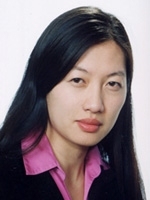President George W. Bush intends to appoint Professor Eric S. Lander to be a member of the National Cancer Advisory Board for the remainder of a six-year term, expiring March 3. Lander, a geneticist, molecular biologist and mathematician, is a member of the Whitehead Institute and the founder and director of the Whitehead Institute/MIT Center for Genome Research. The board advises the secretary of Health and Human Services and the Director of the National Cancer Institute (NCI) regarding activities of the NCI.
Professor Alice Y. Ting of the Chemistry Department has received the Office of Naval Research Young Investigator Award. She will receive research support for three years, and additional money for equipment to investigate "Genetically Encoded Reporters of Signal Transduc-tion." The objective of the Award program is to attract outstanding new faculty members to Navy-related research.
Professor Emeritus Lawrence B. Evans of chemical engineering received Chemical Engineering magazine's 2002 Award for Personal Achievement. The award is given biennially to honor distinguished careers related to the practice of chemical engineering. Evans was recognized for his contributions in the field of simulation and optimization of chemical manufacturing processes and for his leadership as the principal founder of Aspen Technology, Inc. Evans, who was elected to the National Academy of Engineering in 2001, served on the faculty at MIT from 1962-90.
"Downtown, Its Rise and Fall, 1880-1950" by Professor Robert Fogelson has received the Urban History Association's prize for best book in North American urban history published during 2001. Fogelson holds a joint appointment in the Department of Urban Studies and Planning and in the history section. In his book, he argues that downtowns declined despite (and in part because of) efforts to maintain their importance.
Tokushima Bunri University in Tokyo has bestowed an honorary doctorate on Professor Emeritus Koichi Masubuchi of ocean engineering. Masubuchi, who retired in 1996, made notable contributions to the science and practice of welding technology.
Robert A. Childs, a vacuum engineer and technical supervisor of the Alcator vacuum laboratory in the Plasma Science and Fusion Center, has been elected president of the AVS Science and Technology Society (formerly the American Vacuum Society) for 2004. Childs, who has been at MIT for 33 years, started his career here as an electronic technician at Draper Lab and held subsequent positions at the Center for Space Research and the Francis Bitter Magnet Lab.
Fred Salvucci, a senior lecturer in the Center for Transportation and Logistics, has been named one of Boston's most influential people by Boston Business Journal.
The Sigma Xi Committee on Grants-in-Aid of Research has approved a $500 grant to Johnathan King, a junior in biology, to support his research project on "Expansion of Murine Whisker Stem Cells." His work aims to establish a pure culture of hair stem cells extracted from mouse whiskers that could be used to grow other types of cells such as hair or skin.
Scott Boyd, a graduate student in the Harvard/MIT Division of Health Sciences and Technology, won the 2002 Necrotizing Fasciitis Research Prize from the National Necrotizing Fasciitis Foundation. Boyd, a former Rhodes Scholar, won for his project entitled "Mammalian Synthetic Lethal Screens for NF1 Therapeutic Targets." He is doing his thesis work in the Center for Cancer Research with Professor Tyler Jacks on regulation and transcriptional targets of the p53 tumor suppressor protein and related proteins.
A version of this article appeared in MIT Tech Talk on February 5, 2003.






